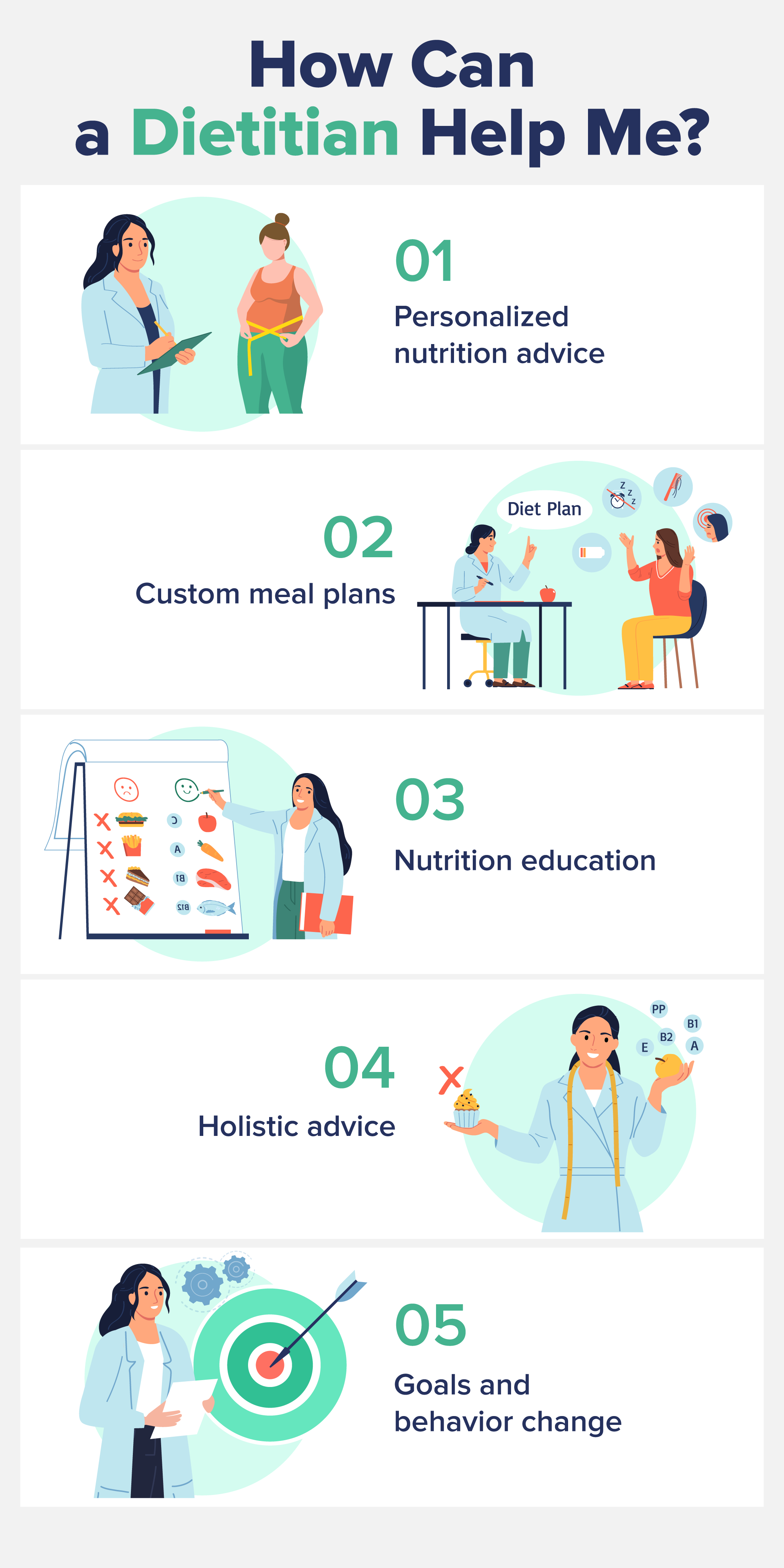Save $40 on your initial consult with a TNI Dietitian!
Talk to a real Dietitian for only $99: Schedule Now
This post contains links through which we may earn a small commission should you make a purchase from a brand. This in no way affects our ability to objectively critique the products and brands we review.
Evidence Based Research To fulfill our commitment to bringing our audience accurate and insightful content, our expert writers and medical reviewers rely on carefully curated research.
Read Our Editorial Policy
If you’re struggling with your diet or nutrition—whether it’s weight management, chronic conditions, gut health, or even mood and mental well-being—seeing a Registered Dietitian can take the guesswork out of your eating habits and provide personalized guidance to help you feel your best.
While most people are great at Googling, the Internet doesn’t have the same background and expertise as Registered Dietitians. Registered dietitians are certified experts in nutrition and food with the knowledge to offer evidence-based advice tailored to your unique needs.
If you want to stop playing guessing games about what to eat, how much, and when, seeing a Registered Dietitian is your first step to feeling better—no matter what your health concerns may be.
Skip forums—get answers tailored to you in a 45-minute consultation.
Skip forums—get answers tailored to you in a 45-minute consultation.

Registered Dietitians (RDs), also known as Registered Dietitian Nutritionists (RDNs), are highly trained and certified experts in nutrition.
RDs have completed degrees in nutrition, including classes in biochemistry, biology, organic chemistry, anatomy, physiology, culinary science, nutrition counseling, and more.
A Bachelor of Science (BS) degree in nutrition or dietetics is required, and many RDs also have their Master of Science (MS) in nutrition. As of January 1, 2024, the Commission on Dietetic Registration (CDR), which oversees the certification of dietitians in the U.S., announced that a Master’s degree is now required for people seeking to become RDs.
RDs must receive national and state licensure through board exams, complete over 1,000 hours of clinical training in a dietetic internship, and maintain ongoing continuing education.
Some RDs undergo additional training to get specialized certifications and offer advanced, personalized care for conditions like digestive disorders, obesity, and pediatric nutrition. The currently available specializations for RDs are:
If you need advanced care for one of these conditions or situations, consider looking for an RD with the appropriate certification.
Dietitians use their knowledge and education to counsel and educate you on topics related to:

A dietitian can help you in several different ways, such as:
Creating goals and behavior change: Dietitians work with you to develop realistic and achievable goals that work for you. They also provide practical strategies for behavior change, such as helping you stick to a balanced eating routine or learning how to manage cravings.
The nomenclature of dietitians can be confusing, as the terms RD (Registered Dietitian) and RDN (Registered Dietitian Nutritionist) are interchangeable. However, someone using just the term “Nutritionist” is different.
The terms “nutritionist” or “health coach” are not regulated or standardized terms—anyone can call themselves a nutritionist without undergoing certifications, designated coursework, and passing exams.
While this doesn’t necessarily mean that nutritionists and health coaches are not knowledgeable, people using these terms do not have to undergo the same qualifying standards for education, clinical training, or licensure as RDs.
Essentially, all dietitians are nutritionists, but not all nutritionists are dietitians.
While dietitians can assist with many aspects of your health, certain things fall outside their scope of practice and are best left to your doctors or other healthcare providers.
First, RDs cannot diagnose a health condition. While they can help you manage your condition through medical nutrition therapy (MNT), they cannot give you a diagnosis that you don’t already have. You need to consult with a doctor or other medical professional for a proper diagnosis.
RDs also cannot prescribe any medications. They can recommend supplements but not pharmaceuticals. Lastly, in most cases (especially in telehealth settings), RDs cannot directly order or request lab work (such as blood tests) because this typically requires a physician’s order. RDs can help you interpret your lab work or recommend that your doctor order a lab test, but they cannot order it directly.
If you’re ready to make lasting changes to your diet, manage a health condition, or simply feel your best (without asking Dr. Google for help), seeing a Registered Dietitian could be the right choice for you. RDs have the expertise, guidance, and support you need to reach your health goals—and it’s all personalized, just for you.
Want to see what an RD can do for you? Book an introductory consultation with one of our RDs today!